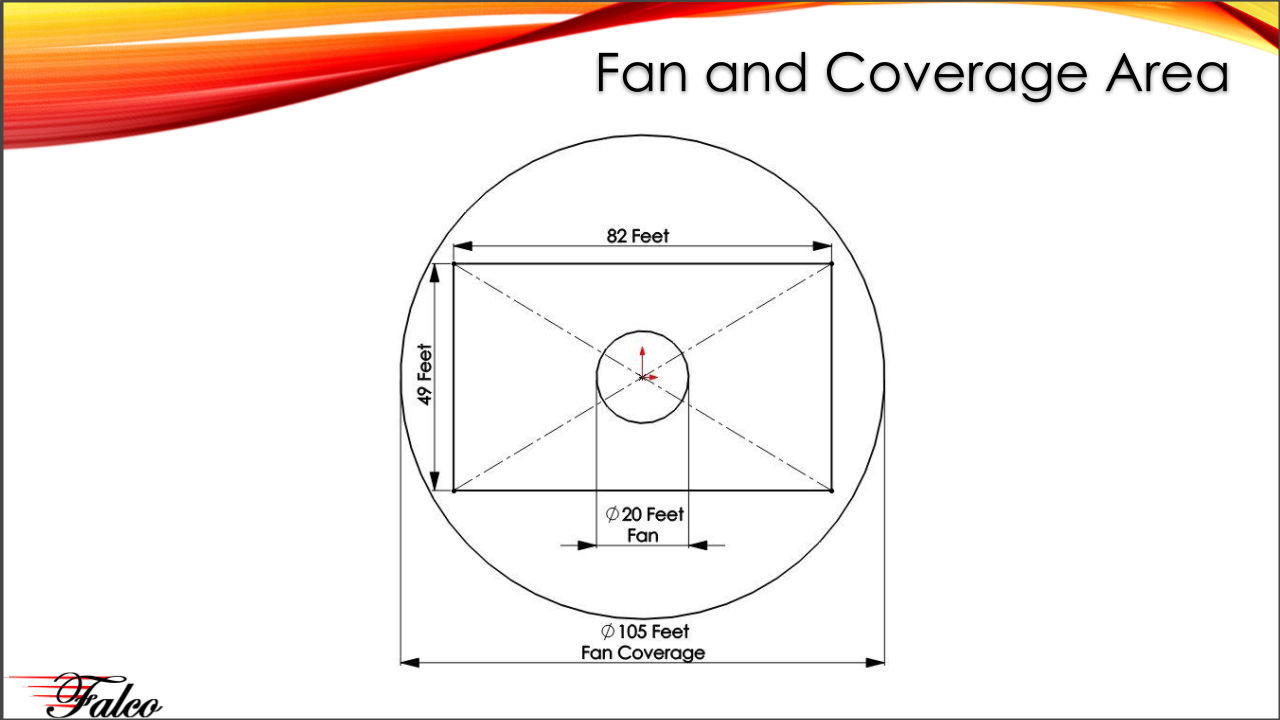A Case Study : Epoch HVLS 20-ft Fan By Falco eMotors Inc.
Report No. 040620-04
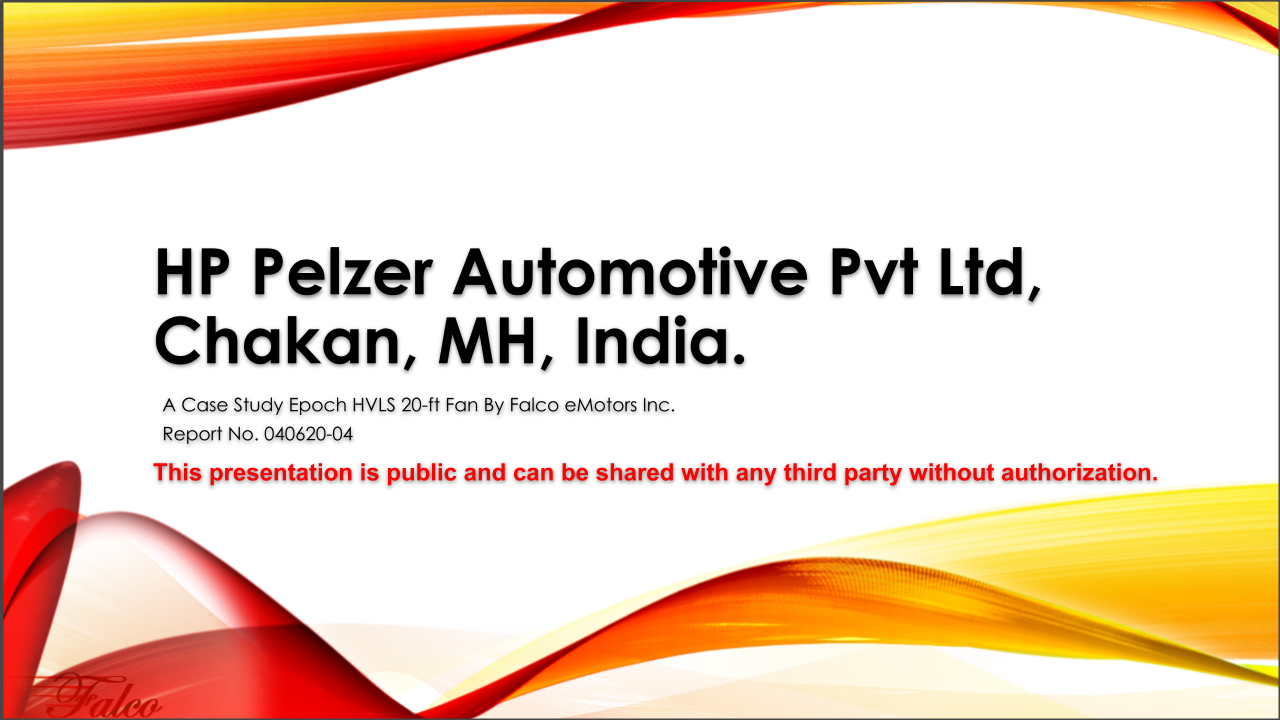
Problem:
- HP Pelzer Automotive Pvt. Ltd. - Manufacturer of car parcel shelf, car floor insulation rear and car boot floor cover Pune, Maharashtra.
-
In the summer there is heat in the Chakan area, with no movement of air, the workers feel uncomfortable.
-
As the machine is working for 24 hours, the heat rises, the cooler and stand fans occupy the floor space, thus affects profit of the company.
-
The industry is looking for the best option, which provides enough airflow to reduce heat and prevent operator discomfort. They found another way that the use of HVLS fans in the workshop could improve productivity.
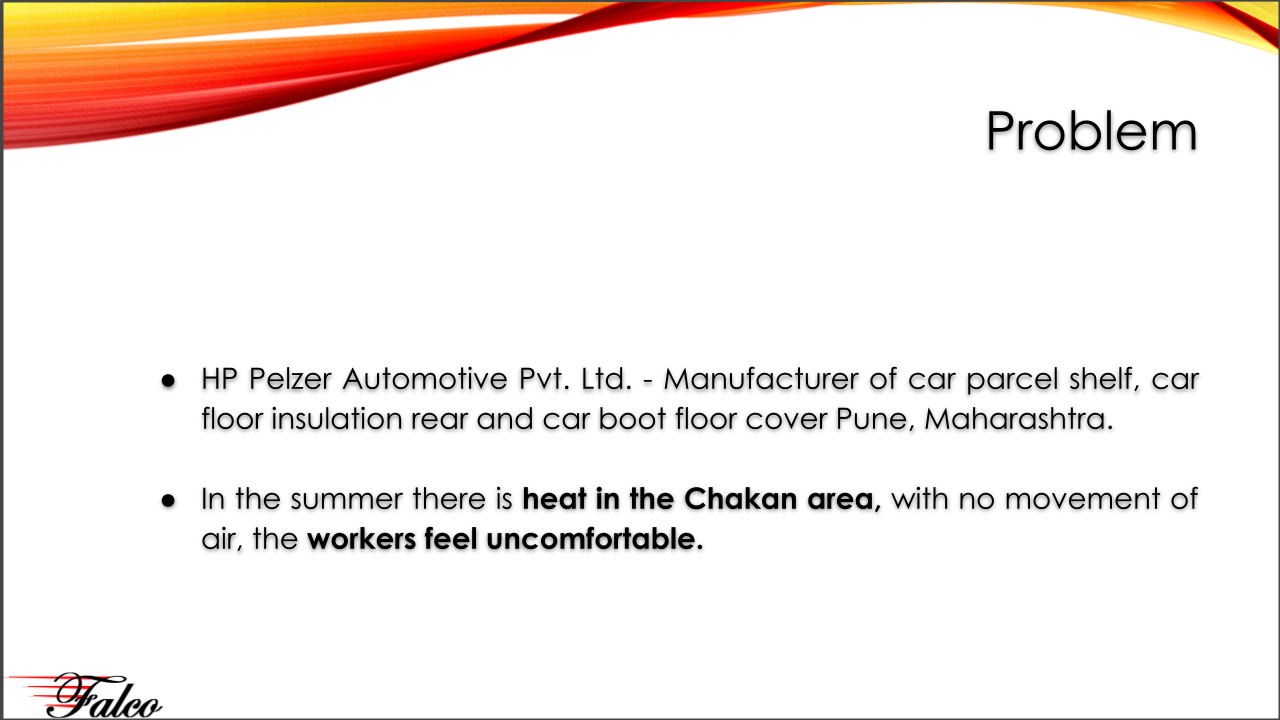
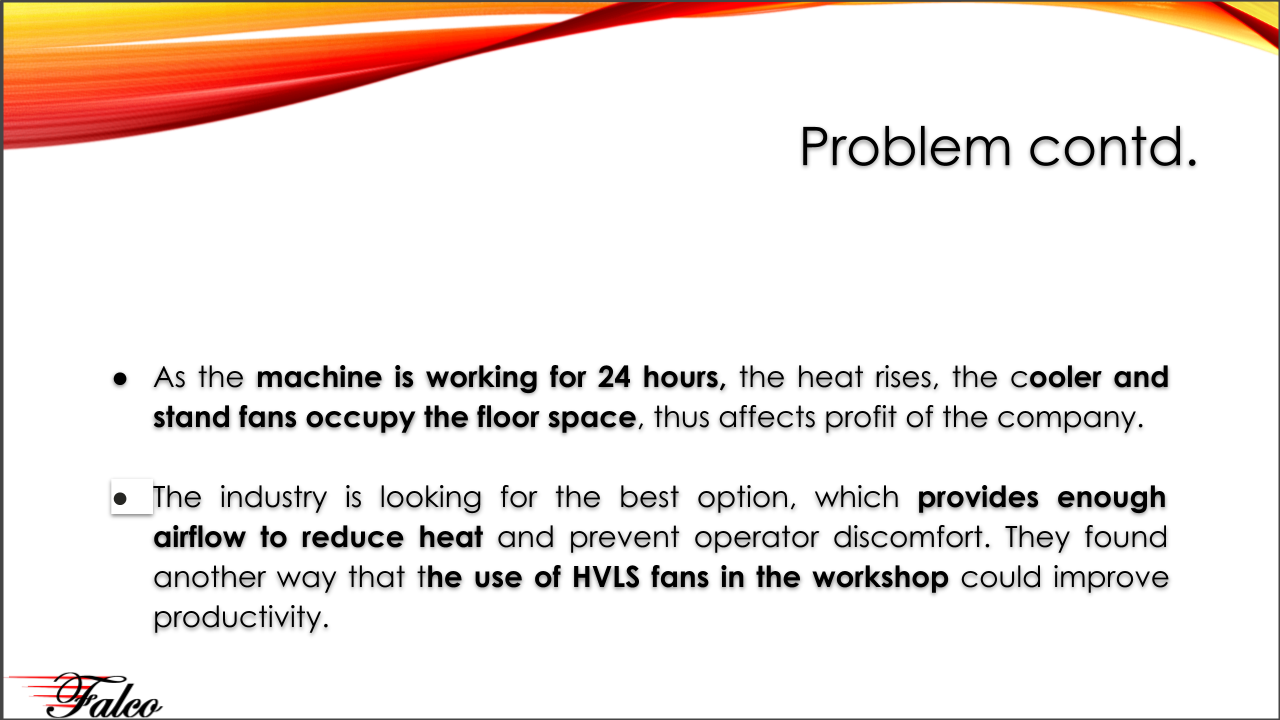
Solution:
- Epoch 2.0, 20-ft Fan was installed with the following specifications ;
- Motor: Epoch 2.0;
- Coverage Area: 18000 Sq. Ft. (1,672 Sq. m);
- Speed: 60 RPM;
- Peak Power: 1.1kW/1.5 hp;
-
Epoch 2.0, 20-ft Fan running at 100% speed operates at less than 35 dBA.
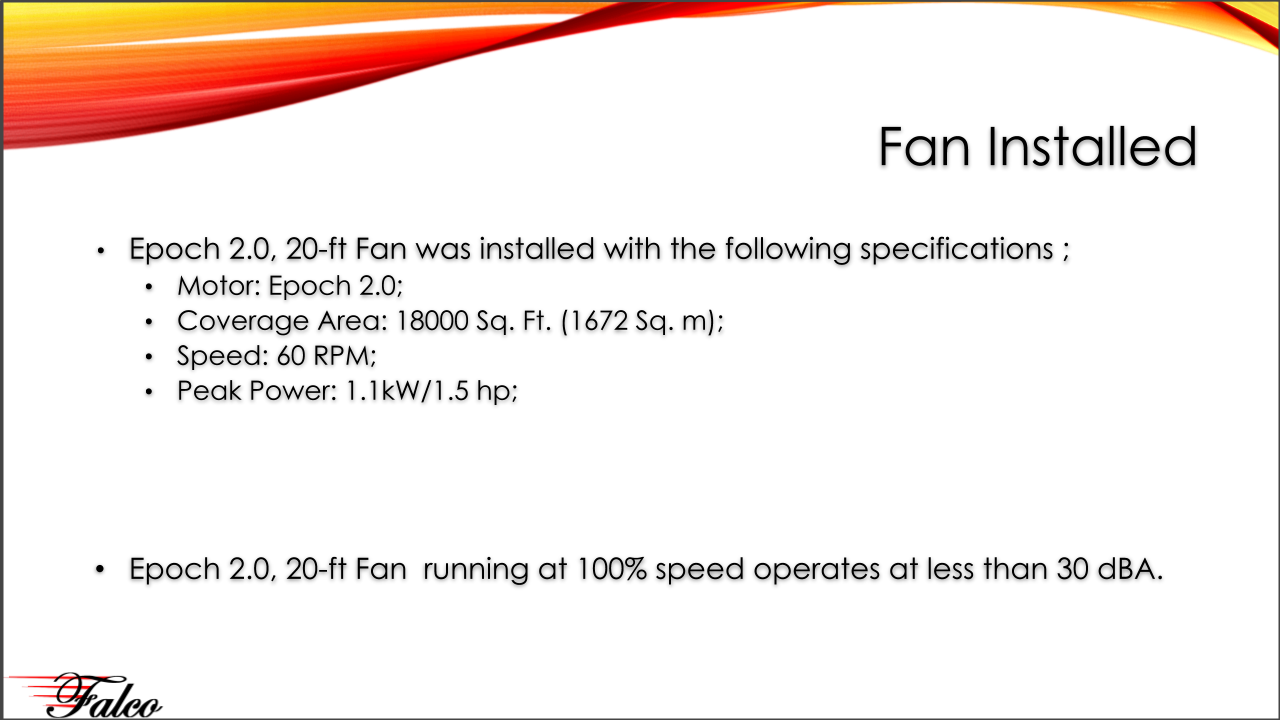
Site Survey:
A site survey is mandatory before any HVLS fan recommendation. The survey revealed the following dimensions:
- Total Area: 82 ft X 49 ft = 4,018 Sq. ft.
- Floor to Ceiling Distance: 30 to 32 ft
- By a rule of thumb distance/1.5 gives us the approximate fan diameter.
- In this case, we chose to go with a 20-ft fan.
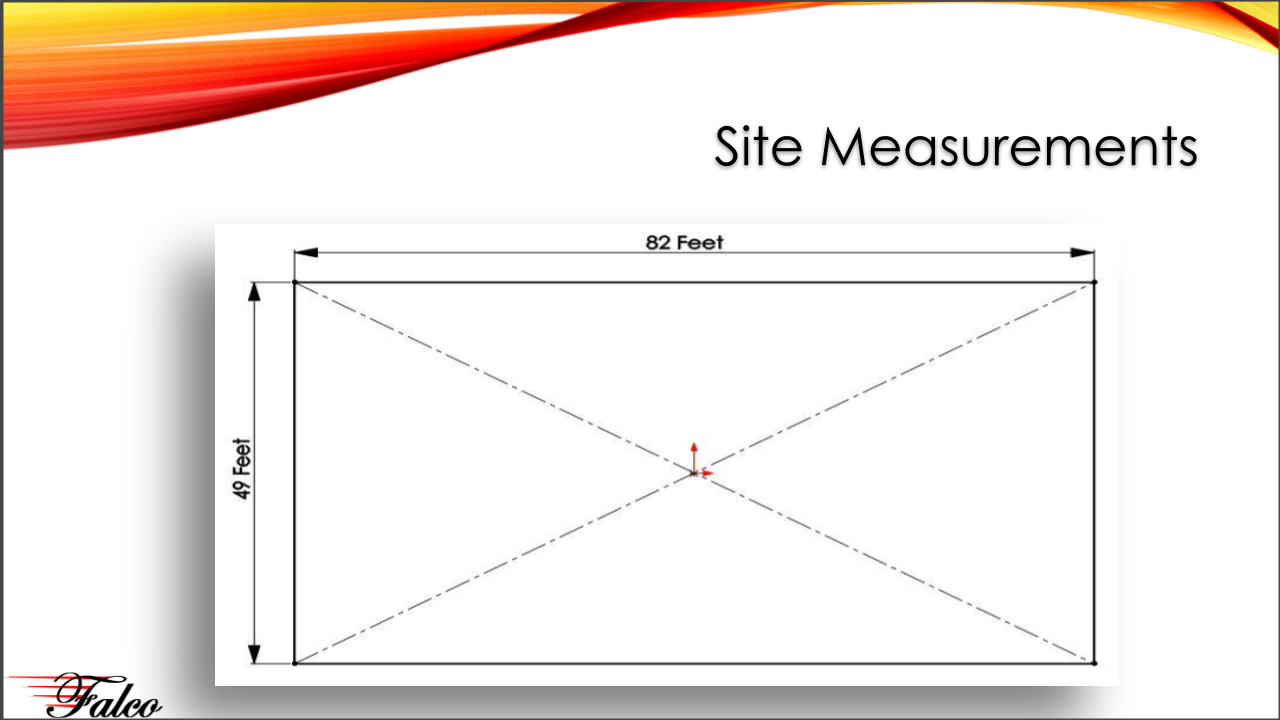
Fan and Coverage Area:
Test Reports:
Three test reports are collected for each fan installation as follows:
- Power Consumption Report;
- Input Current Report;
- Air Flow Report.
Those reports are shown for this site:
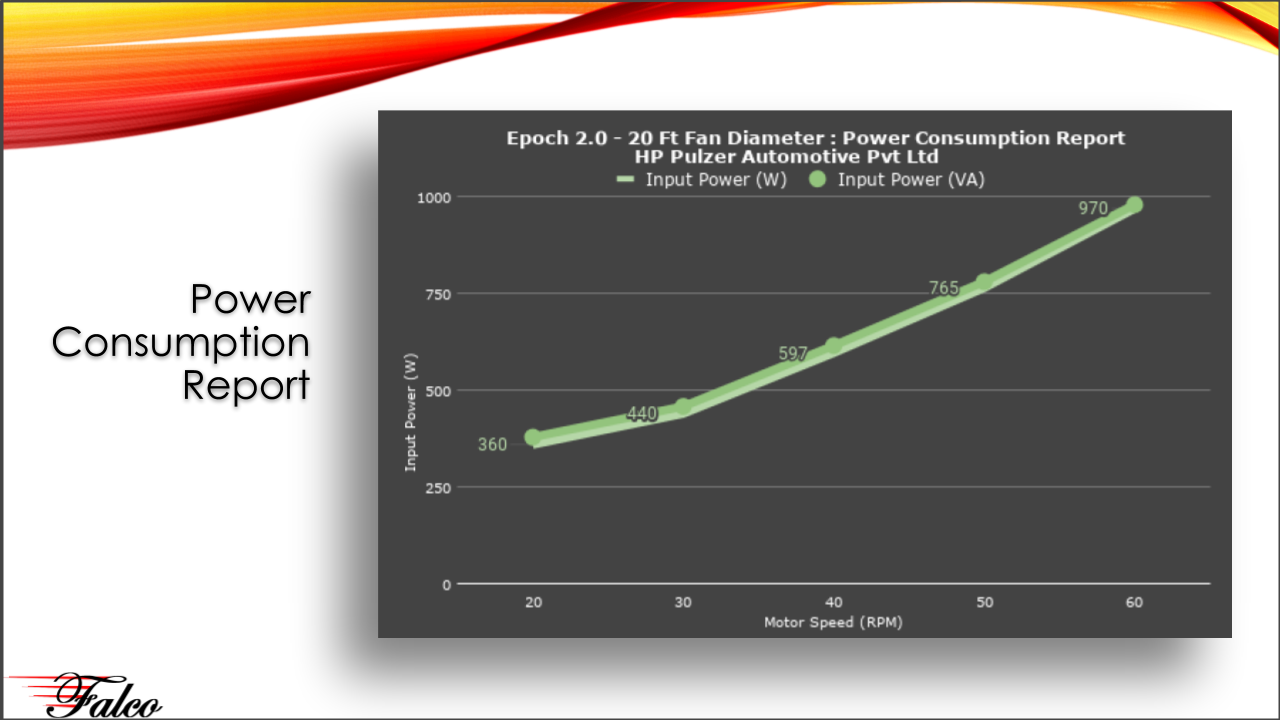
Power consumption report captures the real as well as apparent power. Epoch HVLS fans are the only fans in the world to have active power factor correction and unity power factor. Therefore the Watts (Real Power) and VARs (the apparent power) are almost the same. The power has been captured at 20, 30, 40, 50 and 60 RPM. Power drawn at those speeds are 360, 440, 597, 765 and 970W respectively. The chart above also shows trend lines generated using Excel for real and apparent power to take into account any measurement errors as fan power consumption can be modeled by well known equations.
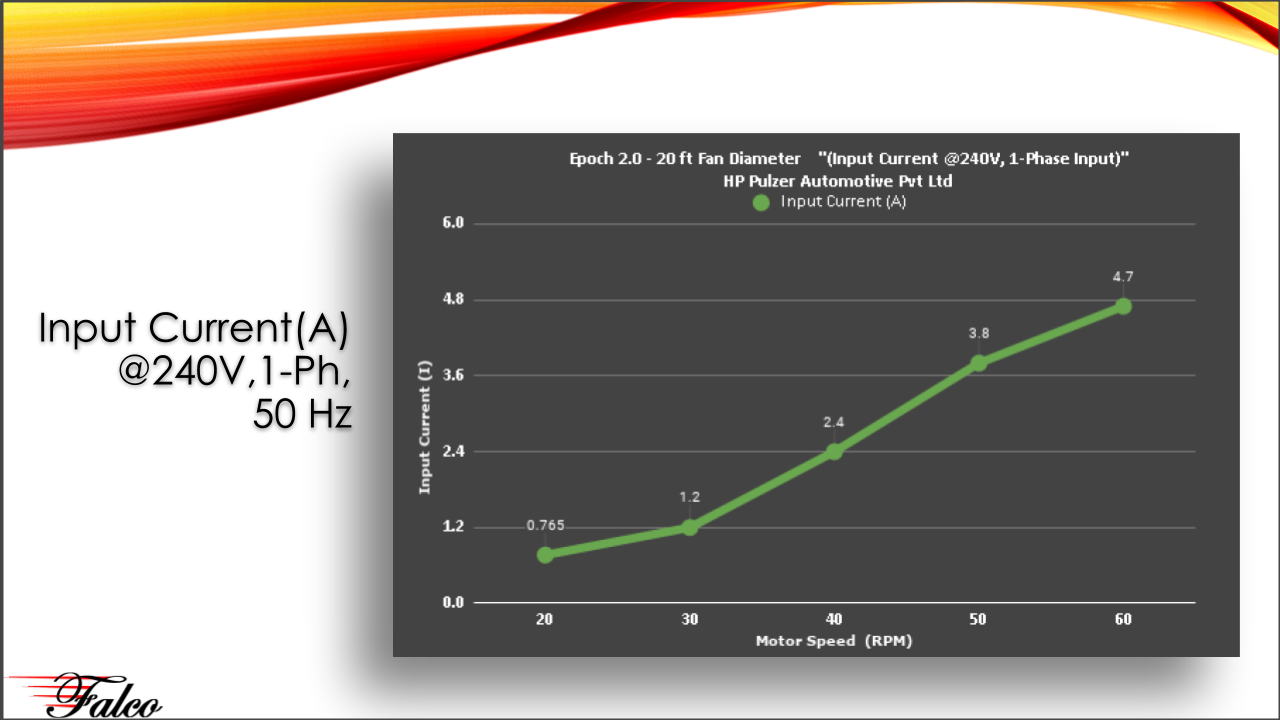
The input current is also measured at 20, 30, 40, 50 and 60 RPM. Input current is recorded as 0.765, 1.2, 2.4, 3.8, and 4.7A respectively. The input voltage varied from 235 to 244V during the measurement.
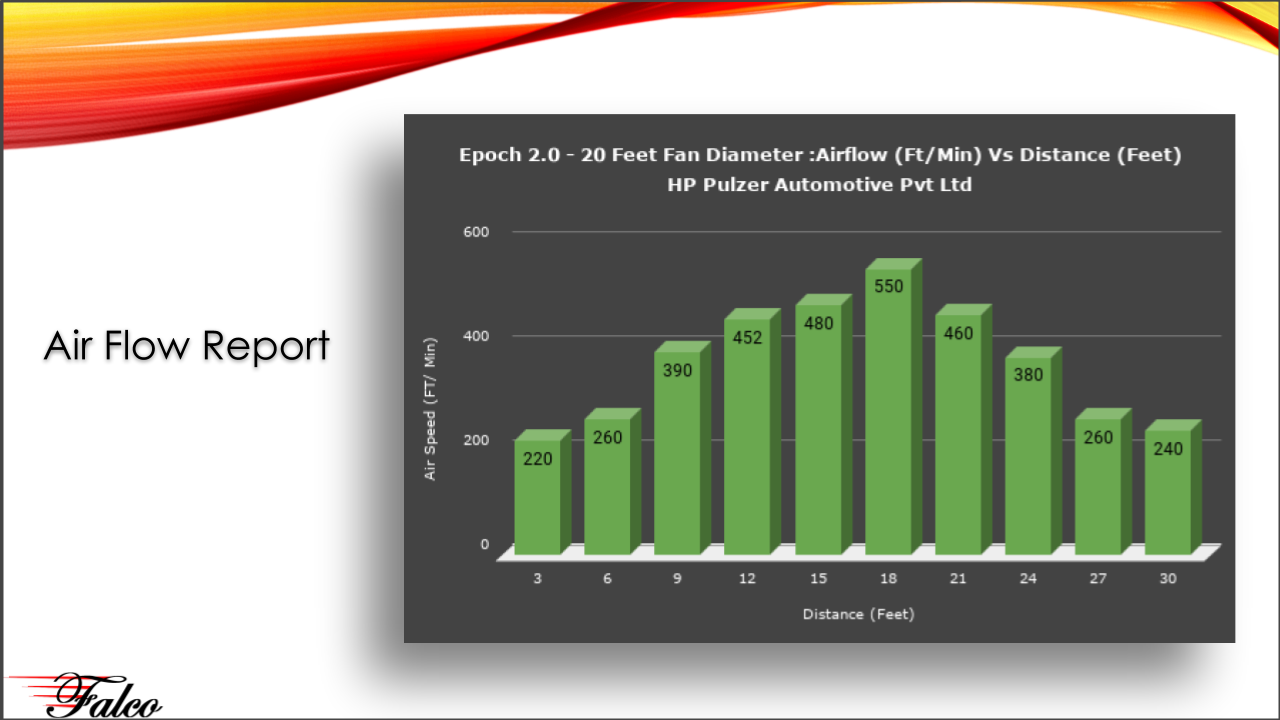
The airflow is measured from the center of the fan and is recorded at every 3-ft distance. Values were recorded upto 30-ft from the center of the fan. The values were respectively, 220, 260, 390, 452, 480, 550, 460, 380, 260, 240 ft/min at distances of 3,6,9,12,15,18,21,24,27, and 30-ft respectively.
Estimated Yearly Savings while Using Epoch HVLS Fans
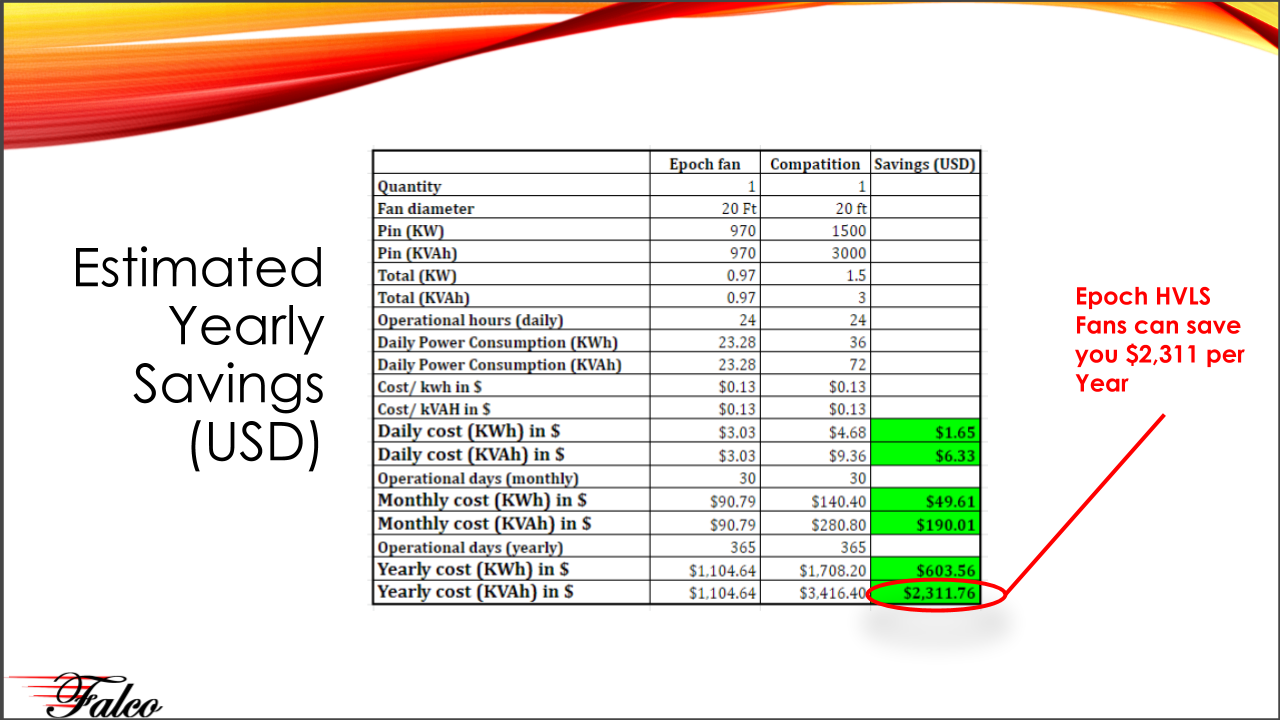
Epoch 20-ft fan was compared against Indian HVLS fan Manufacturer. Based on their data sheet, daily, monthly and yearly power consumption and costs were calculated. An Epoch HVLS fan will save the end user anywhere from $603 to $2,311 per year over any competitive brands because of its unique technology.
Finished Installation:
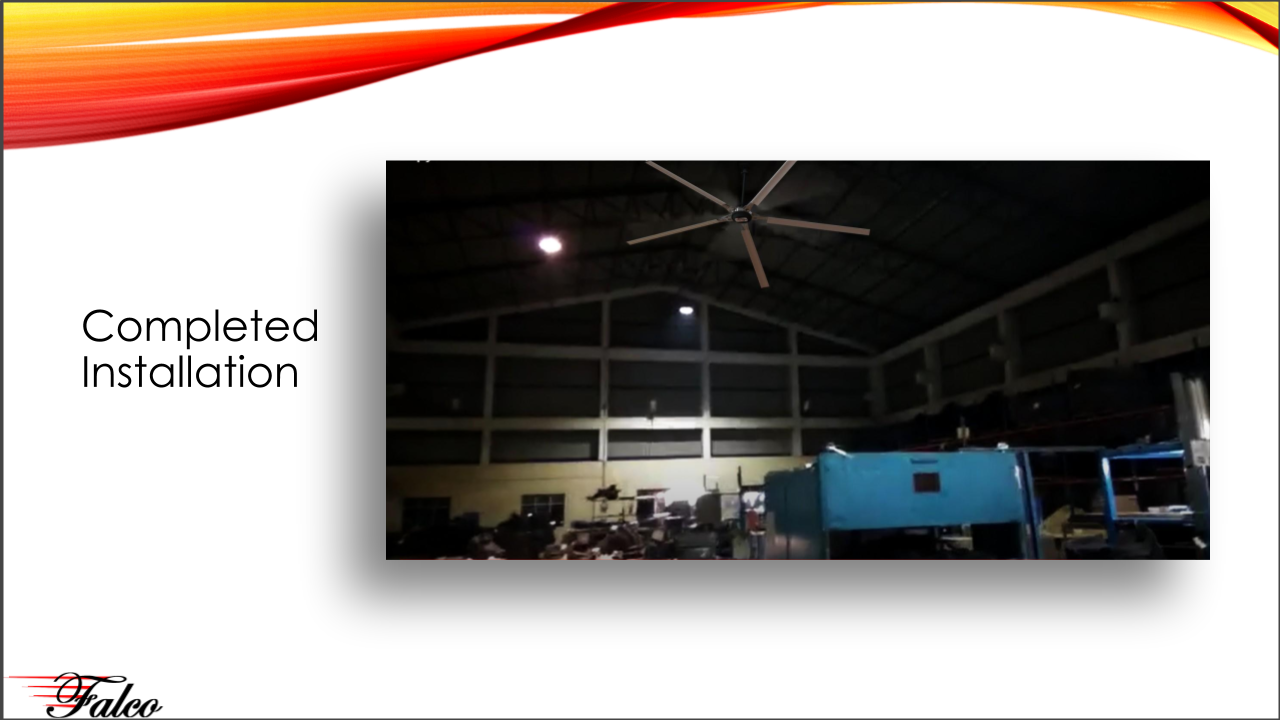
Above is the picture of the finished installation.

